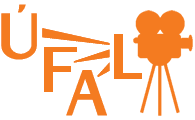The digital humanities—the “computational linguistics” for the rest of the humanities?
Speaker:
Michael Piotrowski
Abstract:
The digital humanities are all the rage—and scholars, funders, and the feuilleton are debating just what digital humanities are. Many of the definitions revolve around the digitization of sources, the use of quantitative methods, fancy visualizations, and “big data.” However, there is very little talk about what the goals of using computers in the humanities are. Are the digital humanities merely about accelerating research, or can they actually advance scholarship?
Compared to other humanities disciplines, linguistics has had a head start when it comes to the use of computers, and—as a computational linguist—I think it is instructive to consider the example of computational linguistics when discussing the digital humanities. In view of this, I believe it is not the application of tools, but rather the introduction of formal modeling into humanities research that will actually advance scholarship.
In this talk, I will discuss the role of modeling for the advancement of the humanities and some of my own work at the Leibniz Institute of European History on controlled vocabularies and the application of Semantic Web technologies for historical research.
Length:
01:07:30
Date:
04/04/2016


